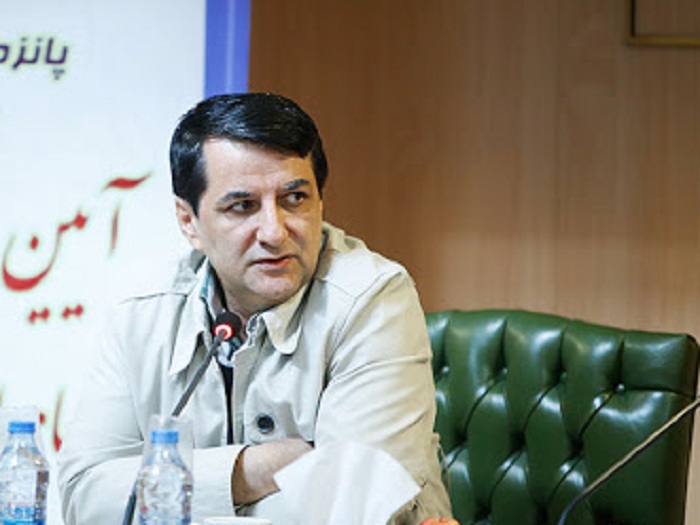The most complete stone book bank in Iran in the National Library

Director General of Linear and Rare Books of the National Archives and Library of Iran: Valuable copies of stone books are available in the National Library, and I believe that the most complete stone book bank is maintained in this organization.
According to the International Iranian Stone Exhibition, Ali Ojabi explained the history of lithography: In the past, if a book wanted to be reproduced, there were those who transcribed books from books as scribes, and then a calligrapher on stone. He engraved and engraved, and was embossed, inked, and finally printed on paper.
He continued: The printing industry started in Qajar period in Iran and stone books before this period can be considered as the first printed samples. Because there are valuable copies of stone books in the National Library, and there is the most complete stone book bank in the organization.
The Director General of Manuscripts and Rare Books of the National Archives and Library of Iran, referring to the existing manuscripts, said: "Variety in manuscripts is one of the features of the National Library, which is maintained by the General Directorate of Manuscripts and Rare Books." In fact, some libraries, such as the Marashi Najafi Library or the Astan Quds Razavi Library, specialize in religious books, but the National Library of Iran, the Majlis Library, or the University of Tehran Library have a wide variety of manuscripts.
He emphasized: "In the last four years, many activities have been carried out to achieve a rare manuscript, and in addition to Tehran, we have also sent our experts to the cities, during which unique copies have been purchased." For example, a book on pharmacology was purchased from a family in Tabriz.
Ali Ojabi explained: This five-volume book belongs to an Andalusian physician and pharmacist named Ibn Samjoon. A well-known expert in Turkey stated that four volumes of this book have been identified in different parts of the world and he has not been able to find the first volume of this book. But fortunately, in the General Directorate of Manuscripts and Rare Books of the National Library of Iran, we were able to find and buy the first volume of this book, which is for the sixth lunar century, entitled "Spicy Spice".
At the end of his speech on the content of this book, the Director General of Manuscripts and Rare Books of the National Documents and Library Organization of Iran said: He was taking.
More than 4,000 electronic dissertation files were collected by the National Archives and Library of Iran
The deputy director of the General Directorate of Documents of the National Archives and Library of Iran announced the receipt of more than 4,000 electronic dissertation files in the first two months of this year, and said: Graduated electronically by graduate students.
Farnaz Mohammadi, Deputy Director General of the National Library and Archives Organization of Iran, announced the news on how to send and register dissertations in national bibliography by graduate students: Students and researchers can visit http: // www. nlai.ir/sending-thesis or via e-mail nonbook-acquisition nonnlai.ir Download your dissertation file in PDF format for permanent storage in the National Archives and Library.
He continued: "Thesis dissertation to the National Library has various advantages, including the registration of the work (dissertation) in the name of the student in the National Library and the possibility of monitoring it through the organization's website for the general public researchers and researchers." This, in addition to preventing parallel work in writing a dissertation and enriching the resources of the National Archives and Library of Iran, will help to advance effective and productive research.
Mohammadi, referring to the spread of Corona virus, said: "Due to the outbreak of Corona virus and the need to plan to increase e-services and reduce face-to-face services, in the General Directorate of Provision of this organization, programs were planned to minimize face-to-face visits." .
The deputy director of the General Directorate of Documents of the National Archives and Library of Iran also mentioned the possibility of viewing the full version of the dissertations sent to the website of the National Archives and Library of Iran for the members of this library and said: Just look at the first twenty pages of the dissertation through the organization's website.
He said: "However, in cases where it is necessary to refer to the minimum, for this reason, it was possible for the members of the National Library to view the full version of the dissertations through the website of this organization."
At the end of his speech, Mohammadi answered the question of whether it is possible for students or applicants who are not members of the National Library of Iran to use the dissertations. He said: "People who are not members of the National Library of Iran can also view the first twenty pages of the dissertations."
* IRNA










